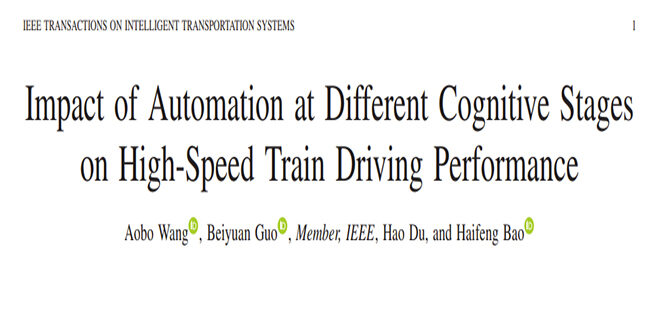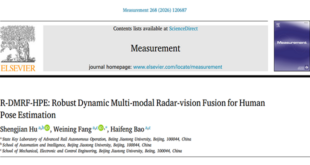Aobo Wang , Beiyuan Guo , Hao Du, and Haifeng Bao
Abstract— In the process of intelligent driving technology development, the performance of human–machine systems for high-speed train driving tasks has been scrutinized and chal[1]lenged. The human cognitive process can be divided into sev[1]eral stages. Within each of these stages, automation can be applied across different levels. However, the impact of different automation levels at different cognitive stages on high-speed train driving performance is still unclear. In this study, different level of automation (LOA) of high-speed train driving functions at different cognitive stages are designed, and 30 participants are recruited to execute orthogonal Latin square experiments.The experimental results show that driving automation in the decision-making stage significantly improved performance in a speed control task but also increased the mental workload and reaction time for monitoring train signals. However, this effect did not occur in a track obstacle observation response time. These results show that driving automation not only improves the performance of primary driving tasks but also has a negative impact on secondary driving-related tasks. This study evaluates the influence of high-speed train driving automation on the performance of human–machine systems and analyzes the advantages and costs of different LOA at different cognitive stages. It provides a theoretical basis for the design of intelli[1]gent high-speed train driving systems from the perspective of human–machine collaboration.
References:Aobo Wang , Beiyuan Guo , Hao Du, and Haifeng Bao. IEEE TRANSACTIONS ON INTELLIGENT TRANSPORTATION SYSTEMS. DOI: 10.1109/TITS.2022.3211709
 复杂系统人因与工效学研究所
复杂系统人因与工效学研究所

